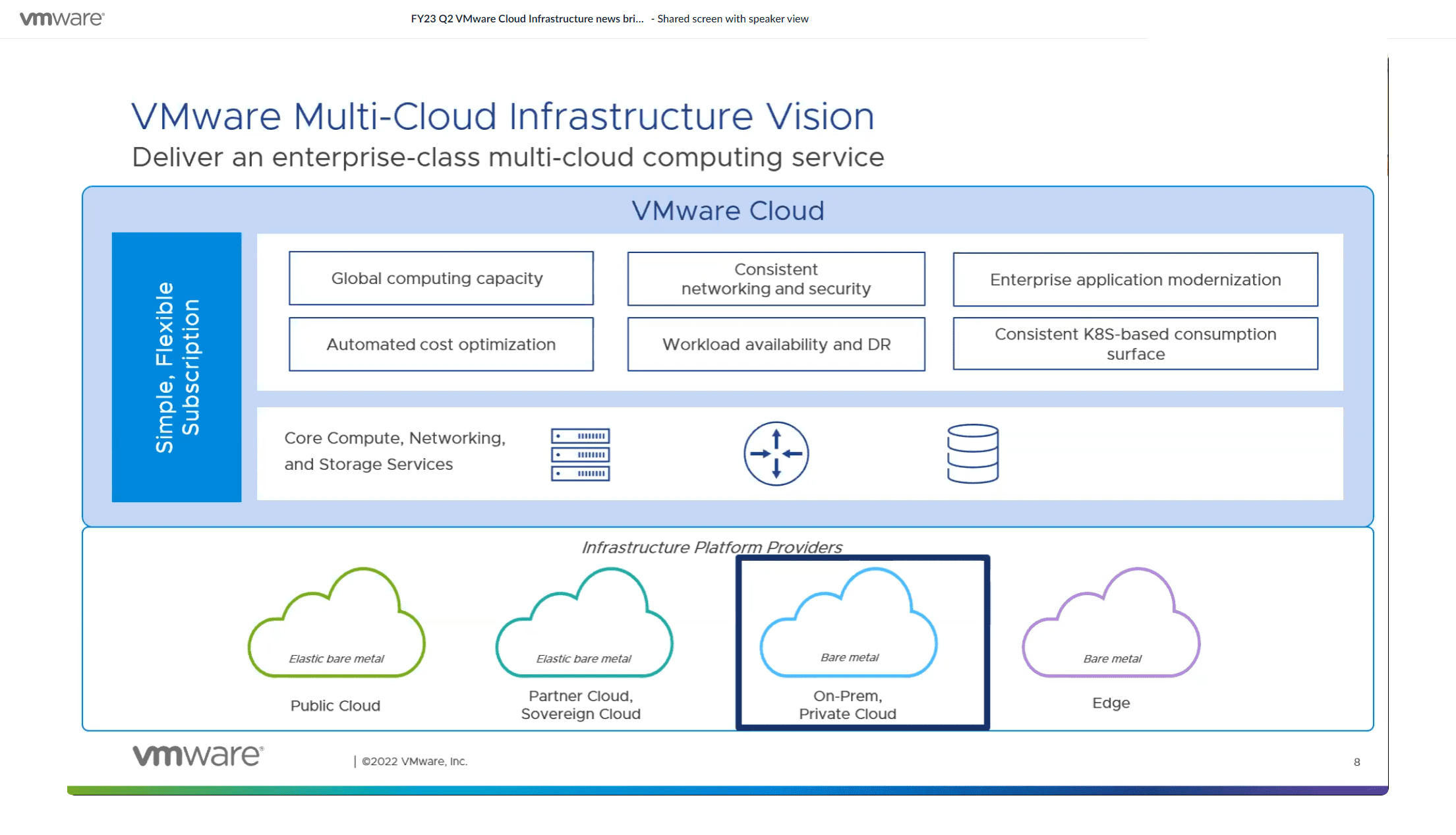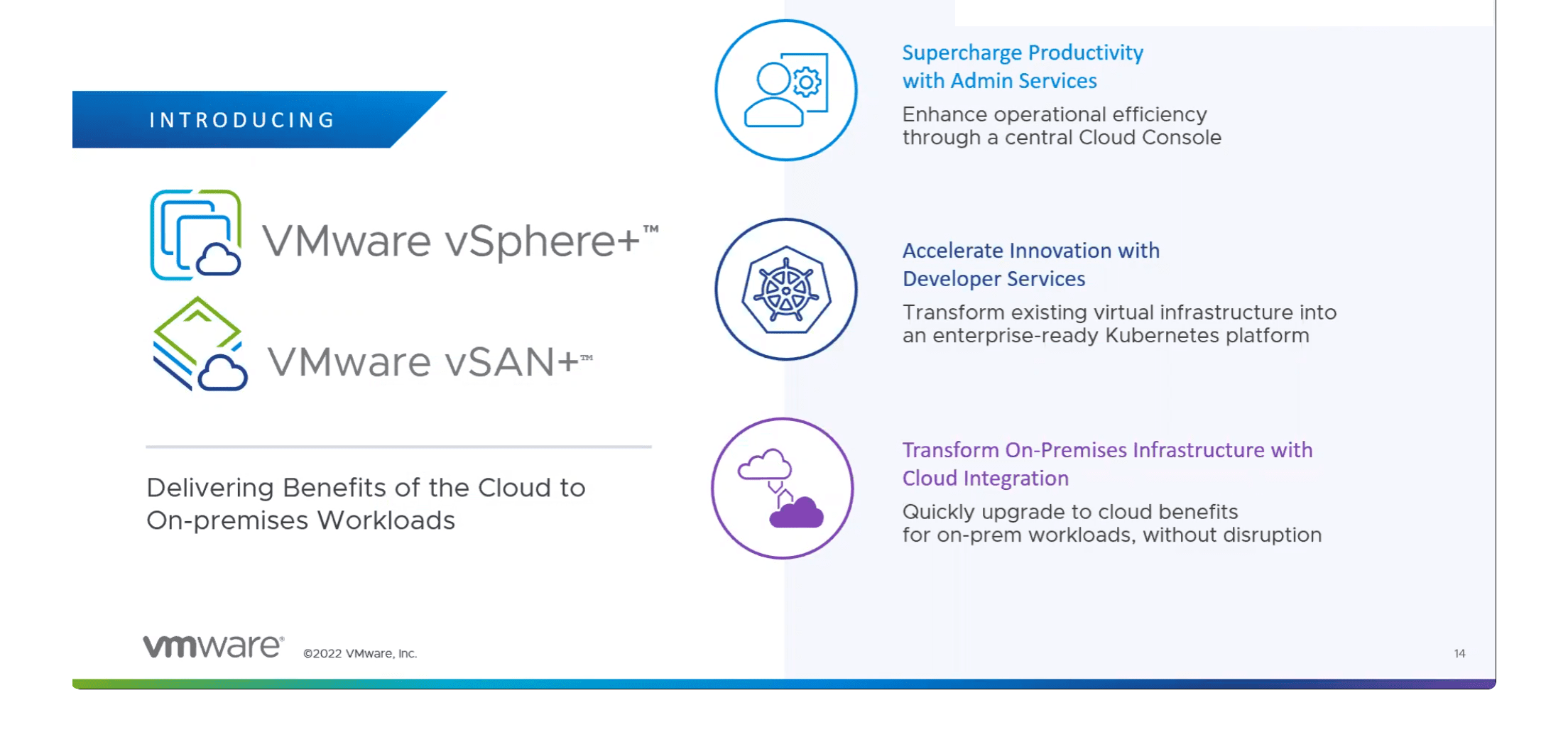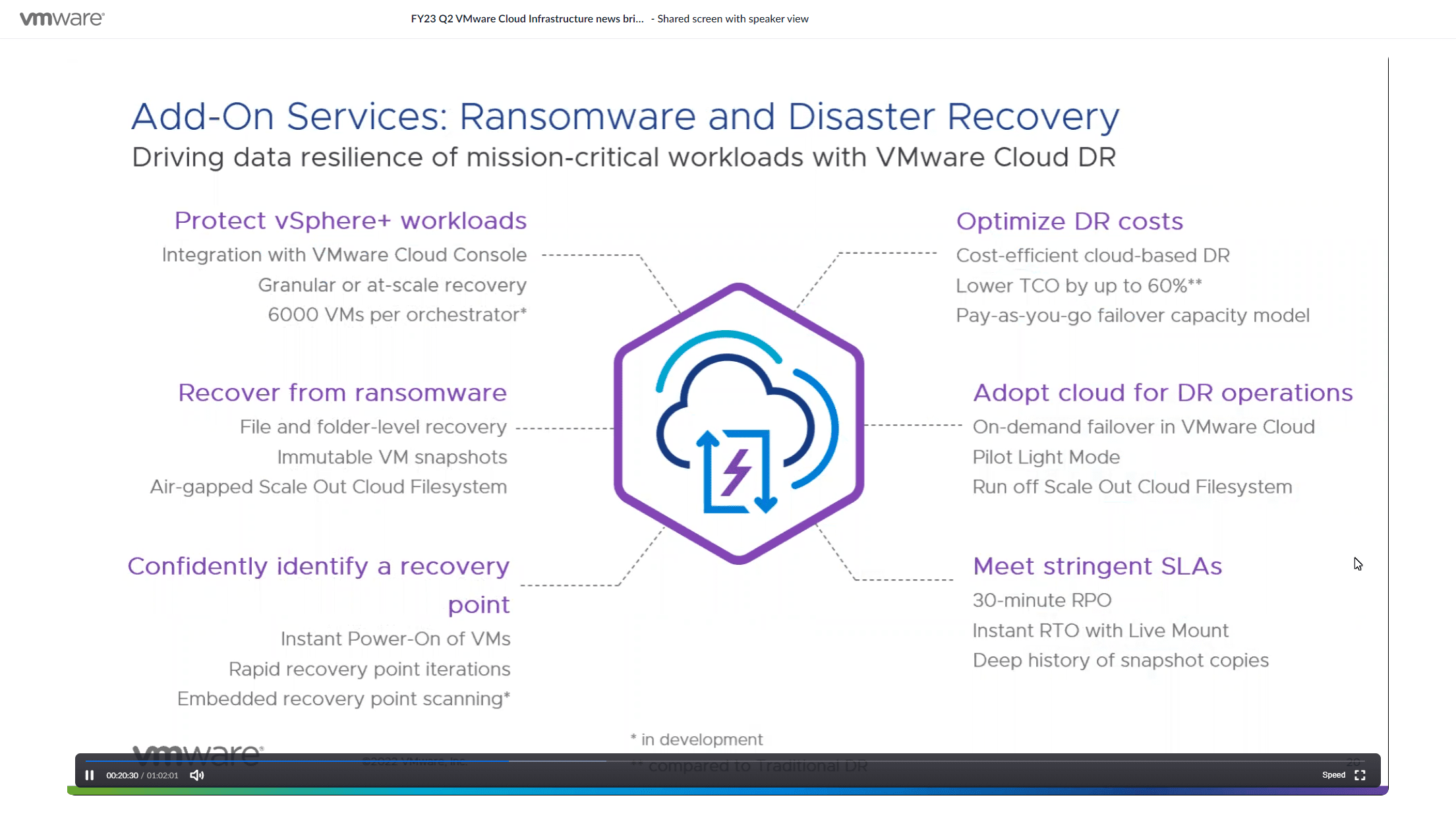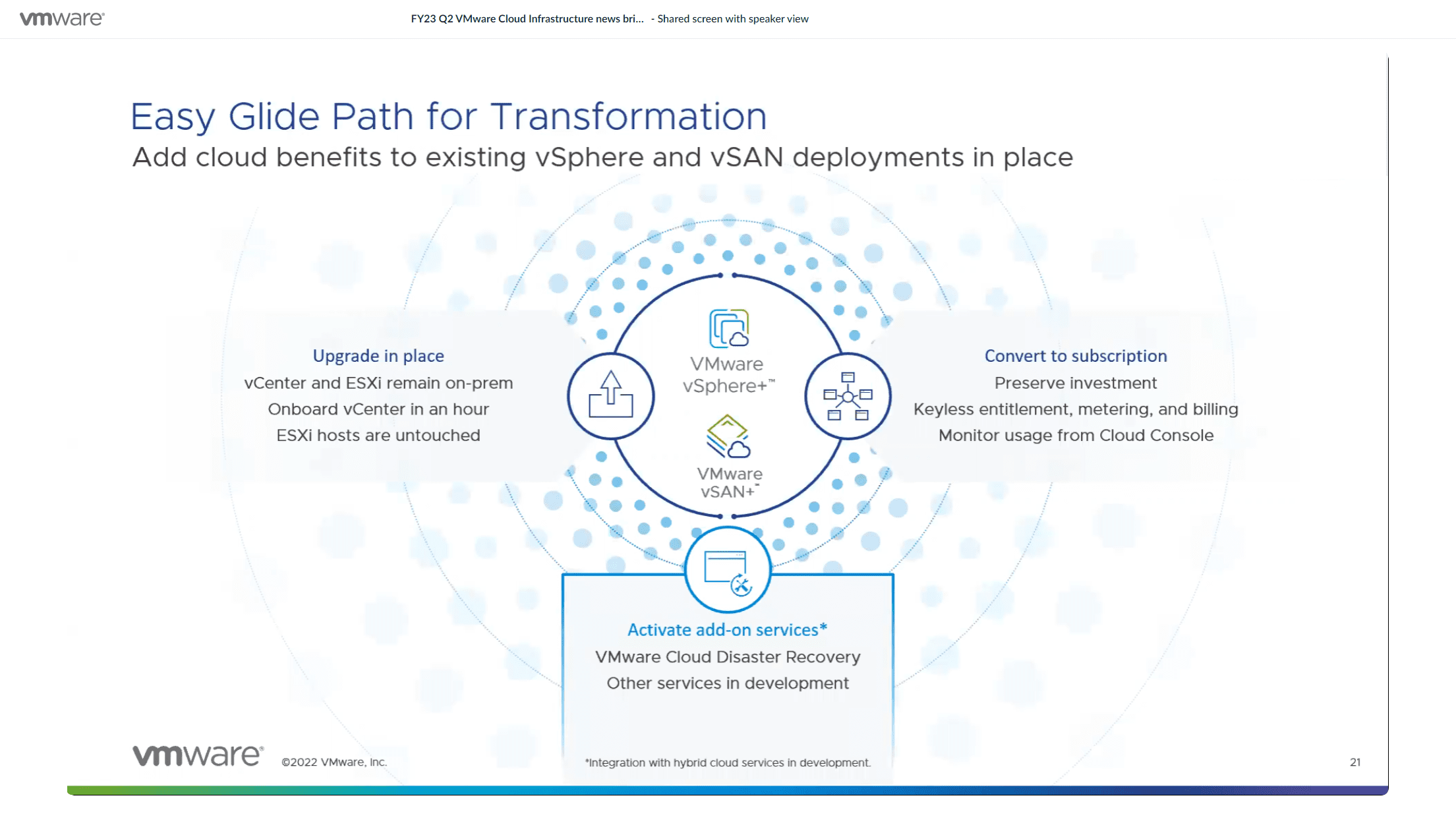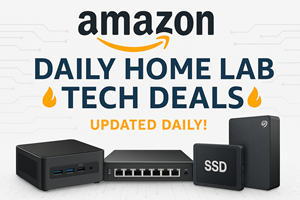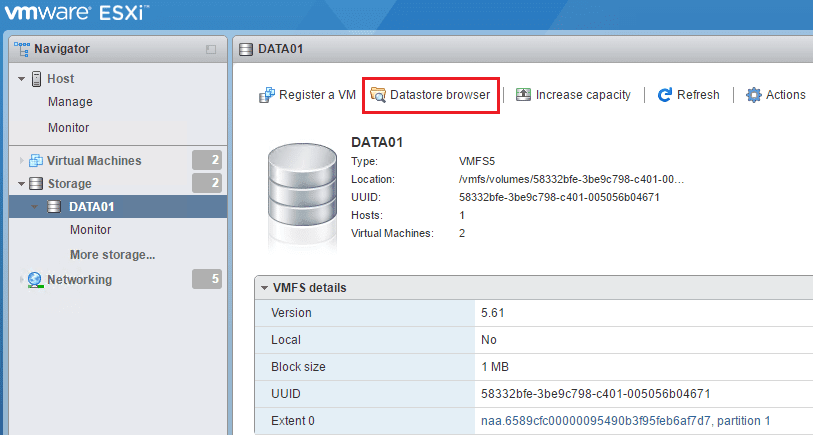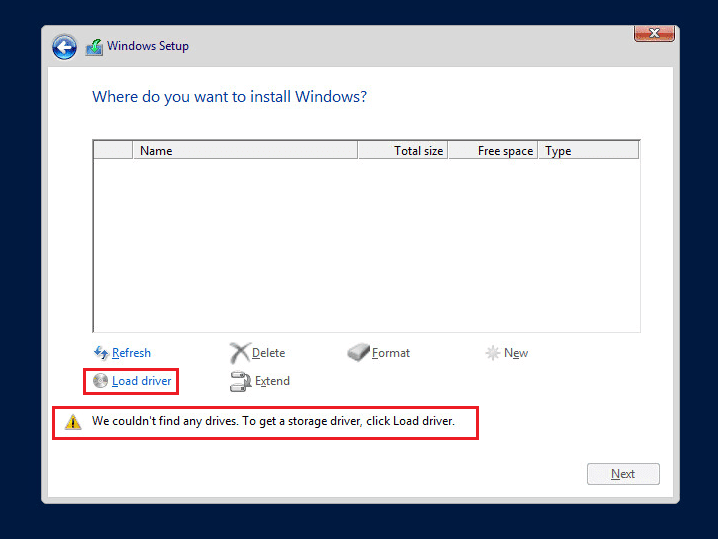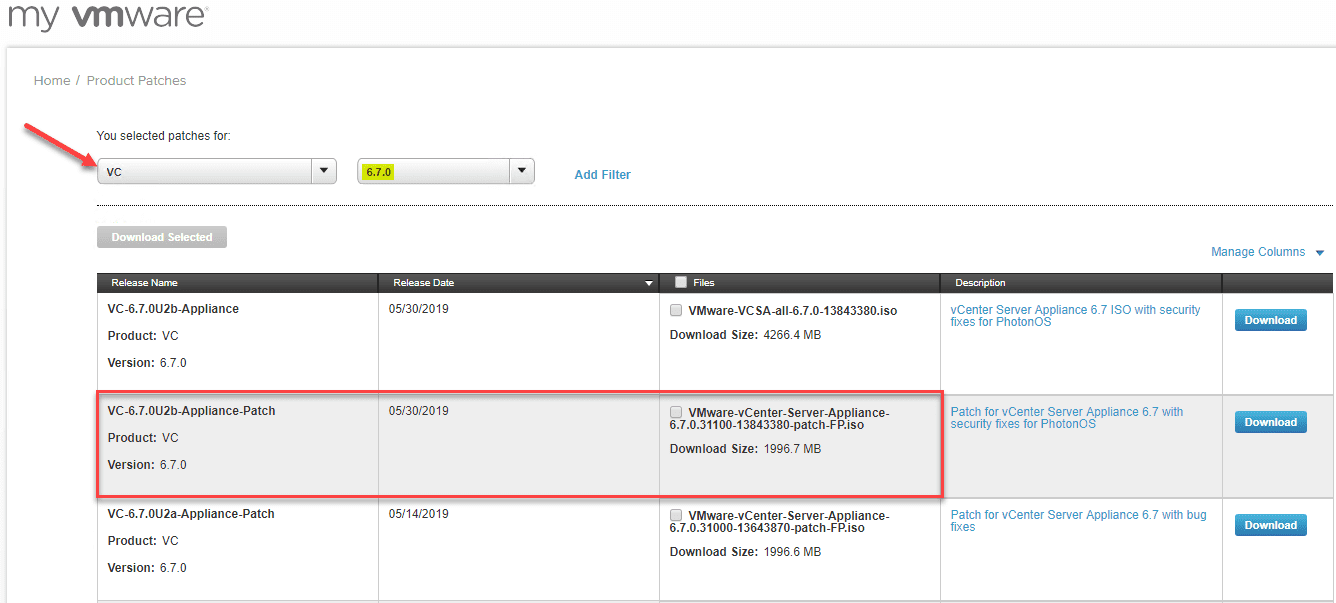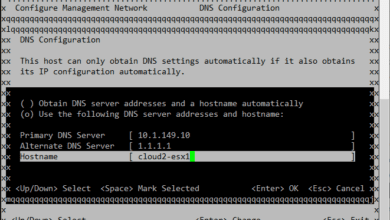VMware vSphere+ and vSAN+ announced new features
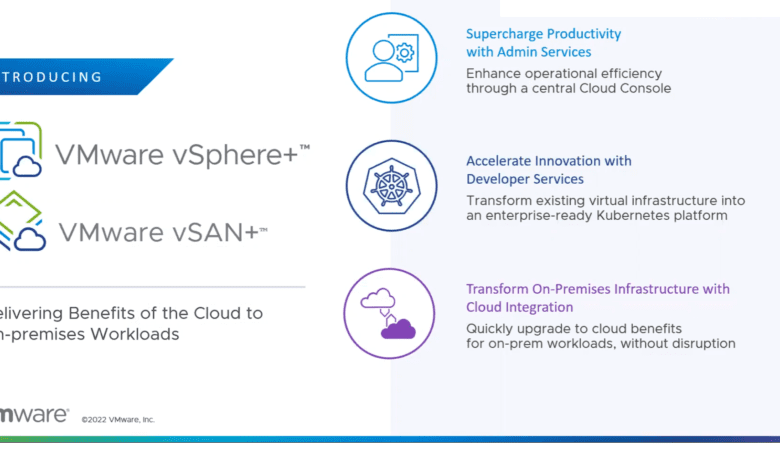
Today, VMware is announcing major news with the release of VMware vSphere+ and vSAN+. These new enhanced versions of vSphere and vSAN will allow VMware customers to realize the full potential of their on-premises environments and have the best that the cloud has to offer. With the new offerings, VMware is making it easier for customers to leverage the power of VMware Cloud along with their on-premises vSphere environments. Let’s take a look at VMware vSphere+ and vSAN+ announced new features and see what capabilities these new releases bring to the table.
Current VMware multi-cloud strategies and solutions
What is VMware’s multi-cloud strategy? Across enterprise environments around the world and customer base, businesses are looking to deliver value to their employees. Maximum choice and flexibility and accelerate innovation. VMware has a very rich portfolio that helps with this problem statement.
- Scale cloud-native platform operations
- Accelerate enterprise cloud transformation
- Empower hybrid workforce
The industry is rapidly evolving from the idea of one cloud to multi-cloud. They want the flexibility to build and run enterprise app portfolios for each application. May be based on technical, business, and strategic considerations. They want to have the flexibility needed to do that. They are embracing multiple public clouds. Most have expanded from 1 to 2 or even 3 public clouds being used. Some are growing private cloud environments. Many are deploying at the edge close to where data is being created – manufacturing, telco, education, etc.
Across the distributed environment, customers are looking for solutions to help accelerate this journey. Workloads are growing everywhere. In the multi-cloud world, they will be running in very distributed environments.
VMware partners with technology leaders in the cloud space to enable the best of VMware capabilities to enable their platform and services which gives customers a powerful set of abilities wherever they want to run their applications.
VMware cloud is helping to solve the challenges associated with these initiatives. VMware is enabling customers with core VMware Cloud infrastructure capabilities with management and visibility with vRealize. By enabling these as services in all these environments, they can help achieve tremendous value and drive down costs, and better availability with this consistent core feature set.
This is a broader view of what VMware is doing. The next stage of innovation is coming to on-premises and private clouds and breakthrough capabilities to bring the cloud to their on-premises deployments.
Current challenges businesses are facing with multi-cloud strategies
What are the business challenges to solve? Infrastructure ops are always under pressure to improve efficiency and productivity. Fixed IT staff must be able to support and enable innovation across on-premises and clouds. They need to be able to quickly identify security issues and vulnerabilities. They also need to manage lifecycle management.
Due to a lack of skills and other resources, IT ops is often unable to deliver the infrastructure needed for modern applications.
Using VMs and containers on-premises can be complex to design, support, troubleshoot, and execute. However, there are many advantages of on-prem or private infrastructure:
- data privacy
- data security
- data sovereignty
- high performance
- low latency
- predictable costs
Nevertheless, many leaders are pressing cloud migrations. Therefore, it is often needed to bring “cloud-like” advantages to on-premises environments. To address all of these requirements, Project Arctic was announced to help accelerate on-premises SaaS transition with a path to cloud in the future.
Using Project Arctic along with VMware Cloud services they now have the tools needed to modernize and innovate.
VMware vSphere+ and vSAN+ announced new features
Introducing VMware vSphere+ and VMware vSAN+. They are built on two solutions many know and trust for years now. Together these bring the benefits of the cloud to on-prem workloads and deliver high-value services to IT ops and developers. It helps to accelerate developer velocity.
With vSphere+ and vSAN+ customers deploy a Cloud gateway on-premises into their vCenter and connect their gateway to their VMware Cloud console, the same console that manages other solutions such as VMware Cloud on AWS. After that customers register any member of vCenter into the Cloud console and convert them to a subscription. During the process, there is no disruption to the workloads. Customers gain centralized management and receive hybrid cloud services such as fully customer-managed admin services and developer services, and then add-on services such as Disaster recovery services. It provides a global management plane in the cloud.
It does not replace vCenter or the local management plane that remains on-premises and customers can continue to use it. It also provides the following benefits:
- Consolidate Management Across a large environment – Enhance operational efficiency by centralizing management and governance through the Cloud Console
- Automate Routine maintenance – Simplify vCenter lifecycle management through cloud-enabled automation and promptly remediate configuration drift
- Monitor and Act on Global Insights – Easily monitor global inventory, alert status, and security posture, and provision VMs to any vSphere cluster or vSAN datastore
For app development, new development services have been added in vSphere+ to improve developer and admin productivity including Tanzu Kubernetes runtime and multi-cloud Tanzu management plane, Mission Control. Developers remain self-serviced and unify Kubernetes management across Kubernetes clusters. It makes vSphere+ a unified environment to run virtual machines and containers side-by-side. It is all packaged in one SKU for a subscription.
VMware optional hybrid cloud services
VMware is also introducing new optional hybrid cloud services such as integrated data protection to recover from regional disasters, ransomware, and others. Another exciting feature in the future will allow scaling resources into VMware Cloud on-demand in the future.
These hybrid and multi-cloud features are just the start of the services integrated. More will come in the future. This will allow delivering value and features more quickly in the future.
VMware vSphere+ and vSAN+ allow moving to an OpEx model and retain existing skillsets that admins already know managing vSphere for years now.
Ransomware and Disaster Recovery services
Add-On services – Ransomware and Disaster Recovery
VMware DR is integrated into the VMware Cloud console. Recovery from ransomware, cloud adoption, SRA, and cost optimization are challenges faced by customers. VMware DR is built into the console. Recovery can be performed at a granular level or at scale (files, folders, and others). The top use case is ransomware recovery. Granular recovery allows recovering files. VMware snapshots are stored in an air-gapped scale-out file system that cannot be corrupted by malware. It allows protection of data and optimizing costs.
Compared to traditional DR, VMware says it can lower DR costs by as much as 60% as the support of the solution is built-in and no maintenance of colo facilities, etc.
Migrate to vSphere+ and vSAN+ without disruption
Summary vSphere+ and vSAN+ upgrade existing deployments in place without any disruption to workloads. VMware vCenter can be onboarded in under an hour. ESXi hosts are not touched. It helps to adopt a cloud operating model with flexible subscription preserving investments. Customers can get away from key management and entitlement management. It allows using capacity as needed.
It allows bringing the hybrid cloud to admins and developers to secure, build, and run, traditional and modern workloads.
VMware vSphere+ and vSAN+ FAQs
- What are VMware vSphere+ and vSAN+? These are new offerings from VMware that allow existing VMware customers to easily onboard their on-premises vSphere environments and integrate these with a cloud console that provides a single pane of glass management interface for both on-premises and VMware Cloud installations.
- What is the vSphere+ Gateway? The Gateway appliance is the only appliance that gets installed on-premises. It connects the on-premises environment with the VMware Cloud console, allowing these solutions to be seamlessly integrated.
- How do customers migrate to vSphere+ and vSAN+? By deploying the Gateway appliance, vCenter Server can be onboarded in under 1 hour using the migration process. ESXi hosts are untouched and no workloads are affected during the onboarding time for the vCenter Server.
- What are the benefits of multi-cloud environments? Using VMware technologies, organizations have a way to effectively migrate workloads to any cloud environment AND go back to on-premises when and if needed for certain workloads. Using VMware HCX and other technologies, customers can seamlessly migrate workloads between on-premises and cloud environments to take advantage of the best of both worlds and not have all their “eggs in one basket.”
Video Overview of vSphere+ and vSAN+
Final Notes
The new vSphere+ and vSAN+ offerings will undoubtedly help VMware customers accelerate their journey in using cloud technologies and environments even more seamlessly, allowing them to achieve current business objectives and overcome the challenges of leveraging cloud technologies. The new vSphere+ and vSAN+ will be easily enabled by installing the Gateway on-premises and onboarding vCenter Server in under 1 hour, according to VMware.
Learn more about vSphere+ and vSAN+ here:


